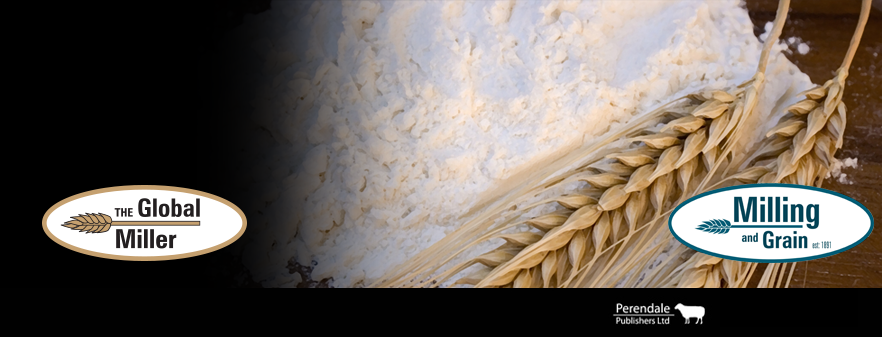by
Lallemand Animal Nutrition
Probiotics may represent a safe opportunity to fight post-weaning dysbiosis and enteric infections in the swine industry
A group of scientists from three research institutions –Clermont-Ferrand University (Université Clermont Auvergne – UCA –), INRA, Institut de l’Elevage, and Ghent University – and Lallemand Animal Nutrition published an in-depth review on post-weaning piglet gut microbiota dysbiosis in Trends in Microbiology
First, the researchers reviewed the impact abrupt dietary and environmental changes during weaning caused to piglets’ digestive microbiota, which can lead to enteric problems. Next, the researchers looked into the effects of non-antimicrobial alternatives that are currently evaluated to restore intestinal balance and allow better management of the weaning transition.
One of the conclusions of this extensive review is that, “among the available
alternatives, probiotics seem to have the highest potential and could represent
a safe opportunity to fight against post-weaning dysbiosis and enteric
infections in the swine industry.” Additionally, the review evaluates in vitro
models that have been designed to study piglet microbiota and develop new feed
additives, which is aligned with the EU 2010 directive to reduce the use of
animals in research.
Reviewing non-antibiotic approaches in weaning piglets
Based on the need for non-antibiotic alternative strategies to restore microbial balance and control gastro-intestinal infections associated with weaning transition in piglets, the authors reviewed studies with several types of such approaches: Zn oxide, organic acids, essential oils, prebiotics, and probiotics.
Concerning the latest, they reviewed 12 probiotic studies (six in healthy piglets, six in pathogen-challenged piglets) conducted with different types of bacteria or yeast probiotics. Conclusions indicate lactic acid bacteria showed an increased abundance of Lactobacillus or Bifidobacterium spp. and a decrease in E. coli in newly weaned piglets, highlighting a strain-dependent effect.
This led researchers to conclude that, “among the available alternatives, probiotics seem to have the highest potential as they constitute the only feed additive that is efficient towards pathogenic strains in piglets. Although the underlying mechanisms are not fully understood, protection of piglets from post-weaning infections by probiotics could notably occur through inhibition of pathogen growth and adhesion to intestinal mucosa, stimulation of the piglet immune system, or modulation of the composition and activity of the resident microbiota.”
Read the full article with references, HERE.
Probiotics may represent a safe opportunity to fight post-weaning dysbiosis and enteric infections in the swine industry
A group of scientists from three research institutions –Clermont-Ferrand University (Université Clermont Auvergne – UCA –), INRA, Institut de l’Elevage, and Ghent University – and Lallemand Animal Nutrition published an in-depth review on post-weaning piglet gut microbiota dysbiosis in Trends in Microbiology
First, the researchers reviewed the impact abrupt dietary and environmental changes during weaning caused to piglets’ digestive microbiota, which can lead to enteric problems. Next, the researchers looked into the effects of non-antimicrobial alternatives that are currently evaluated to restore intestinal balance and allow better management of the weaning transition.
 |
| Weaning piglets Image credit: Lallemand |
Reviewing non-antibiotic approaches in weaning piglets
Based on the need for non-antibiotic alternative strategies to restore microbial balance and control gastro-intestinal infections associated with weaning transition in piglets, the authors reviewed studies with several types of such approaches: Zn oxide, organic acids, essential oils, prebiotics, and probiotics.
Concerning the latest, they reviewed 12 probiotic studies (six in healthy piglets, six in pathogen-challenged piglets) conducted with different types of bacteria or yeast probiotics. Conclusions indicate lactic acid bacteria showed an increased abundance of Lactobacillus or Bifidobacterium spp. and a decrease in E. coli in newly weaned piglets, highlighting a strain-dependent effect.
This led researchers to conclude that, “among the available alternatives, probiotics seem to have the highest potential as they constitute the only feed additive that is efficient towards pathogenic strains in piglets. Although the underlying mechanisms are not fully understood, protection of piglets from post-weaning infections by probiotics could notably occur through inhibition of pathogen growth and adhesion to intestinal mucosa, stimulation of the piglet immune system, or modulation of the composition and activity of the resident microbiota.”
Read the full article with references, HERE.
The Global Miller
This blog is maintained by The Global Miller staff and is supported by the magazine Milling and Grain
which is published by Perendale Publishers Limited.
For additional daily news from milling around the world: global-milling.com


No comments:
Post a Comment